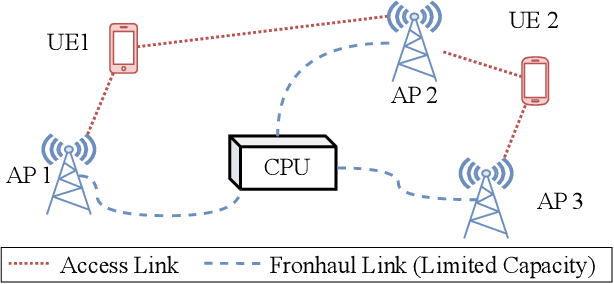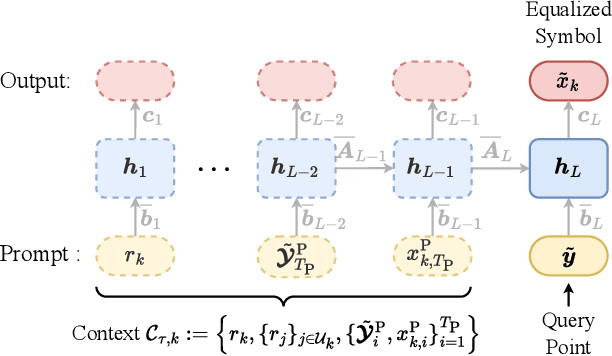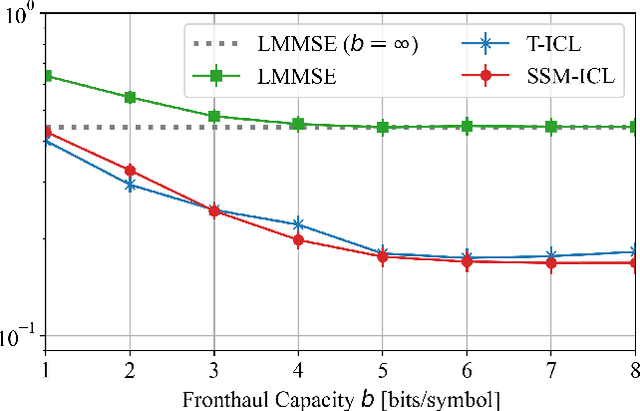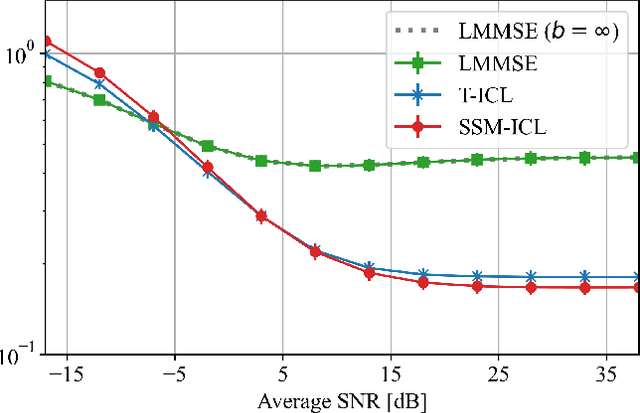In-Context Learned Equalization in Cell-Free Massive MIMO via State-Space Models
Paper and Code
Oct 31, 2024



Sequence models have demonstrated the ability to perform tasks like channel equalization and symbol detection by automatically adapting to current channel conditions. This is done without requiring any explicit optimization and by leveraging not only short pilot sequences but also contextual information such as long-term channel statistics. The operating principle underlying automatic adaptation is in-context learning (ICL), an emerging property of sequence models. Prior art adopted transformer-based sequence models, which, however, have a computational complexity scaling quadratically with the context length due to batch processing. Recently, state-space models (SSMs) have emerged as a more efficient alternative, affording a linear inference complexity in the context size. This work explores the potential of SSMs for ICL-based equalization in cell-free massive MIMO systems. Results show that selective SSMs achieve comparable performance to transformer-based models while requiring approximately eight times fewer parameters and five times fewer floating-point operations.
 Add to Chrome
Add to Chrome Add to Firefox
Add to Firefox Add to Edge
Add to Edge